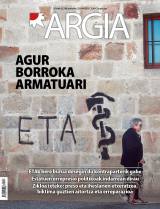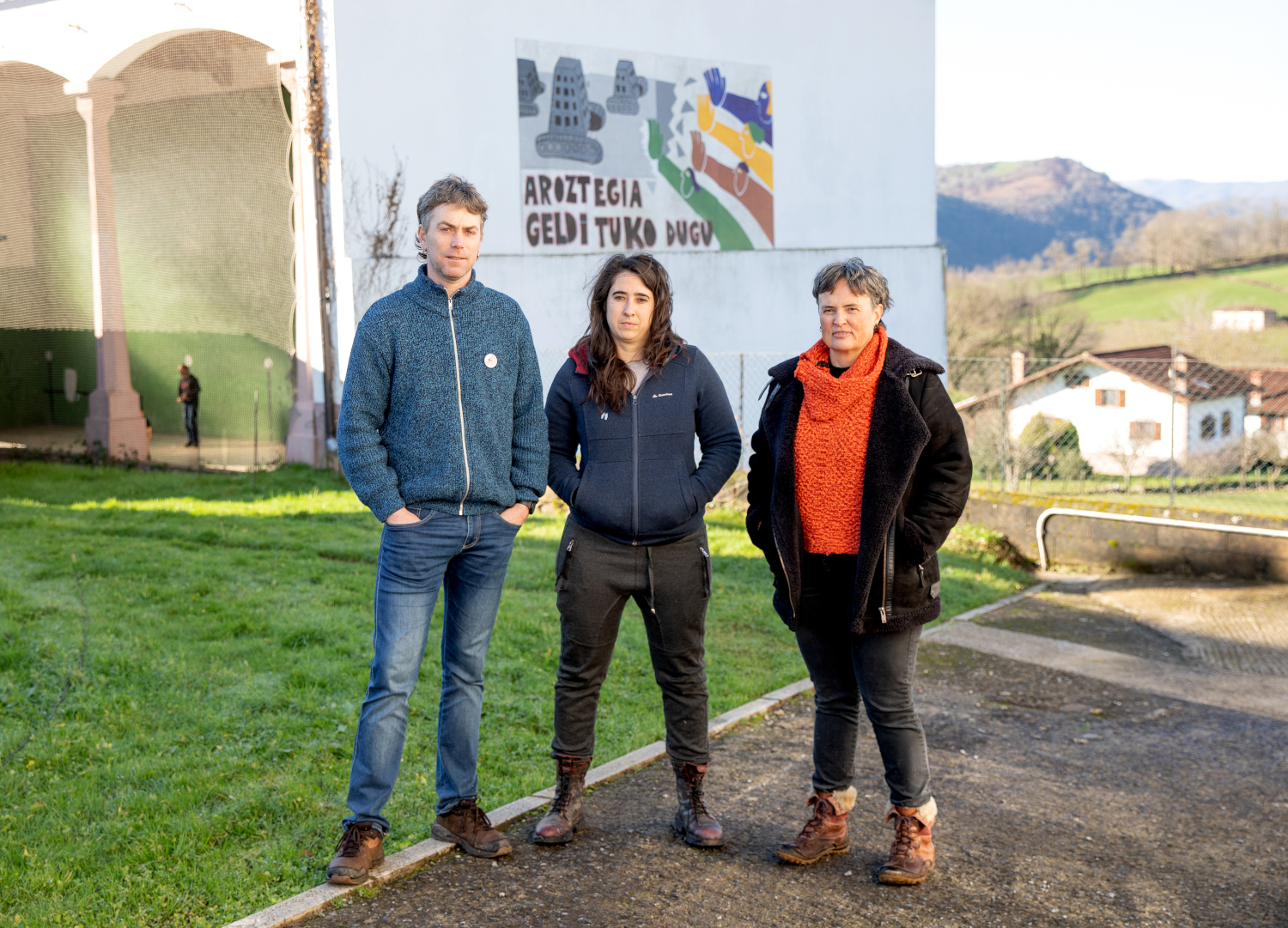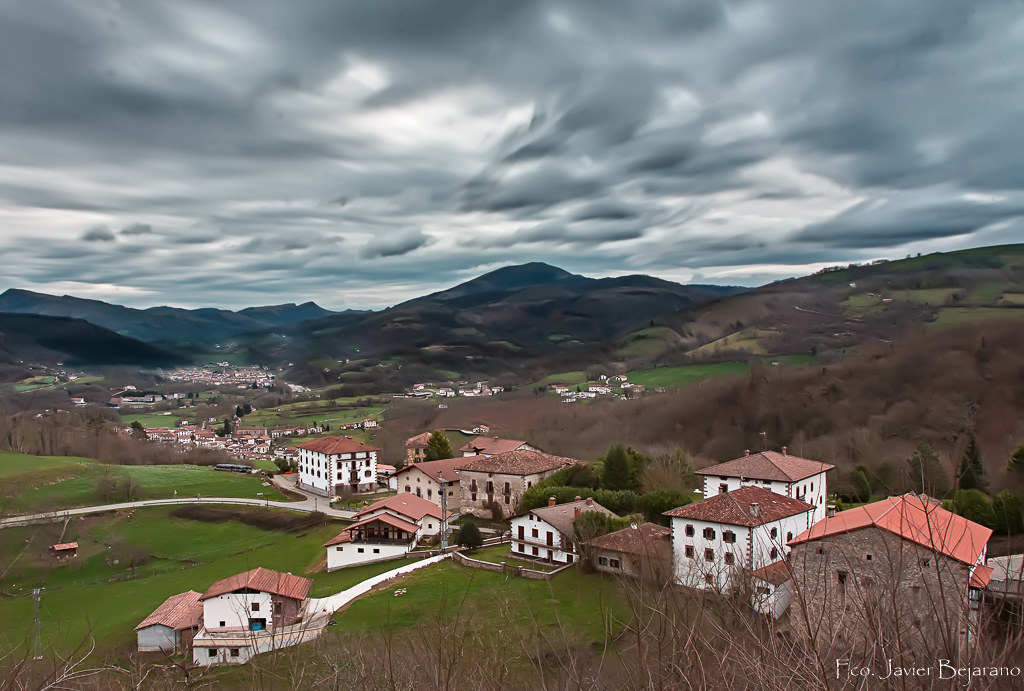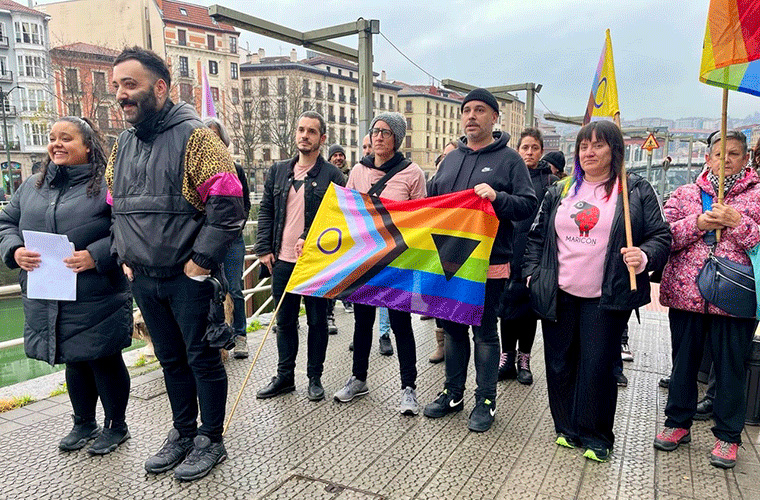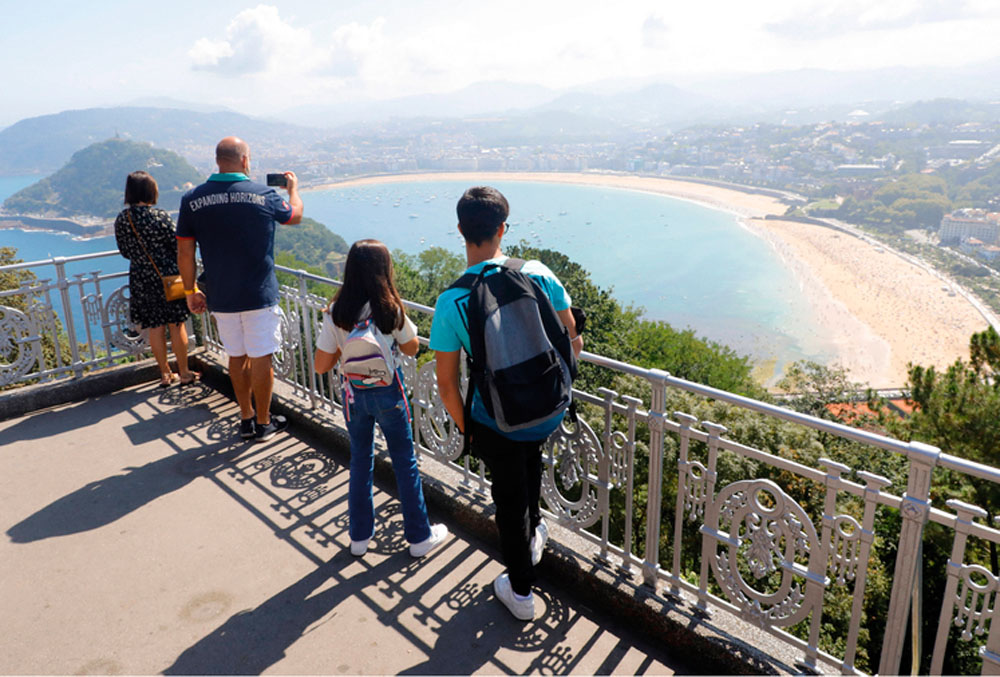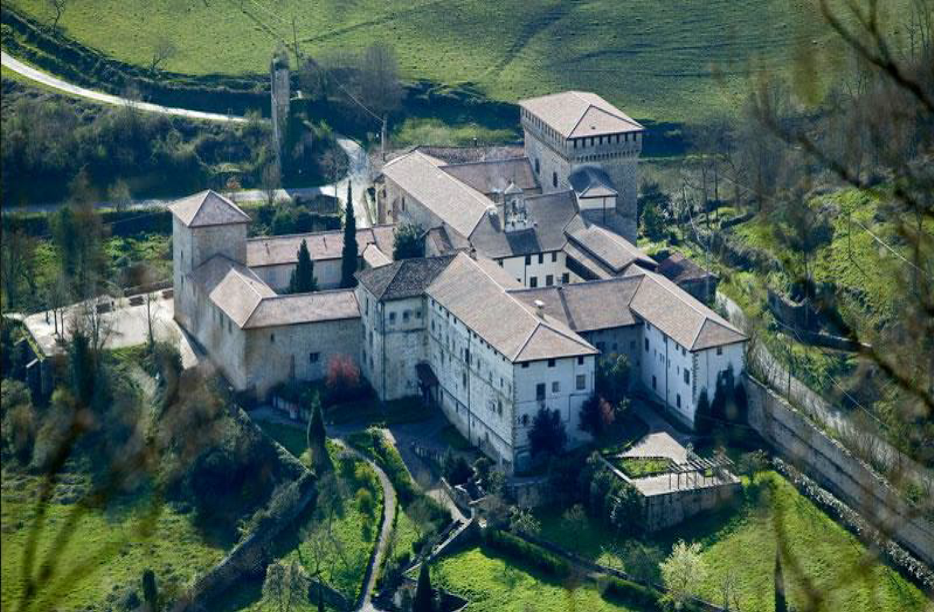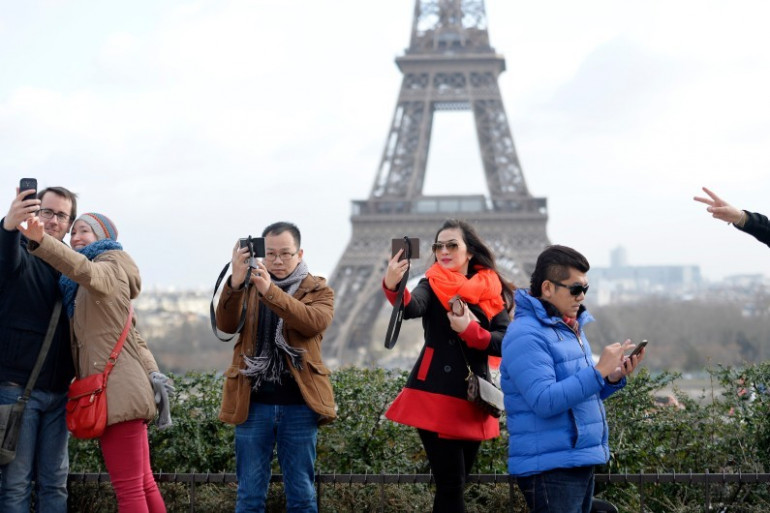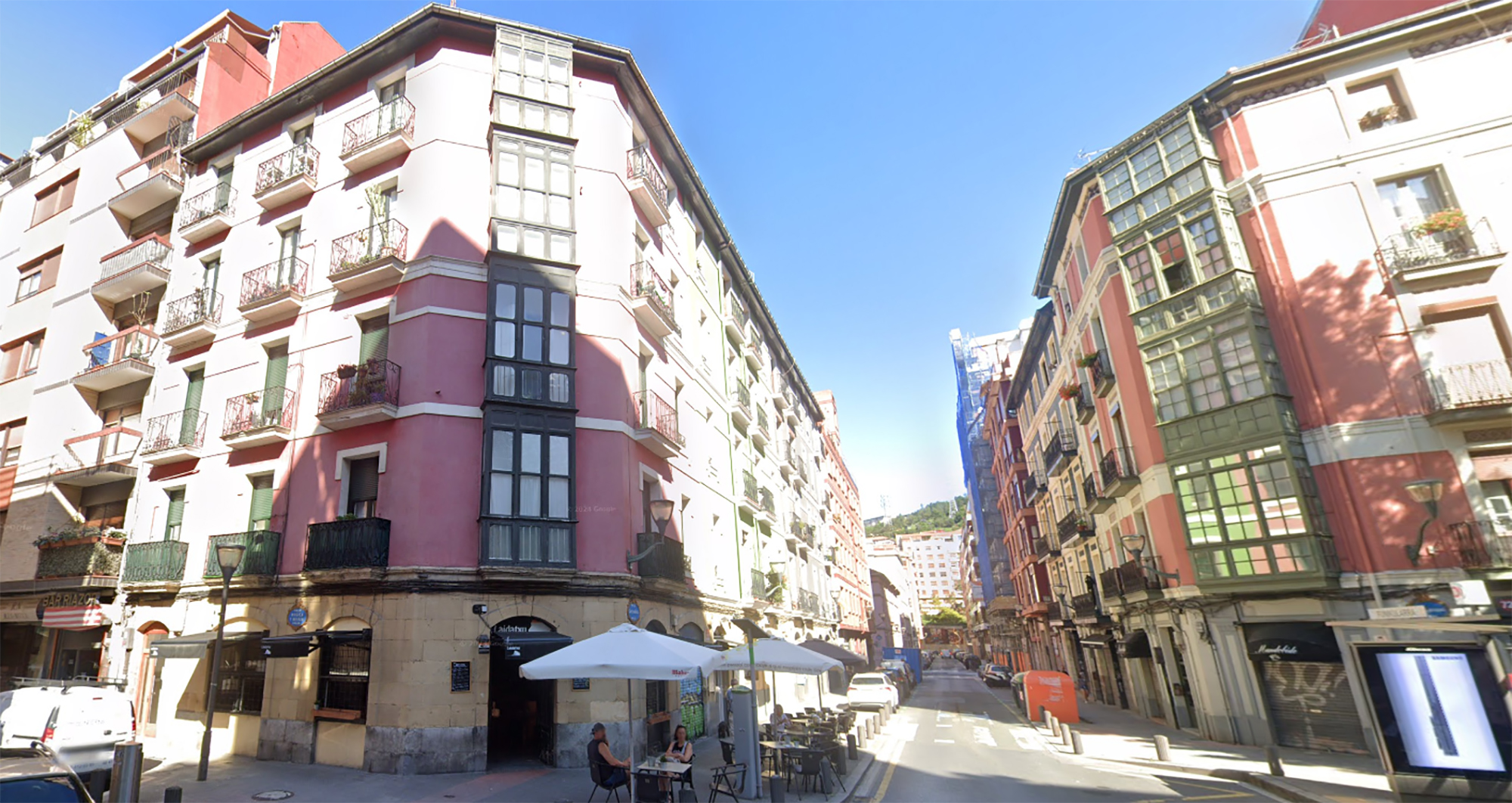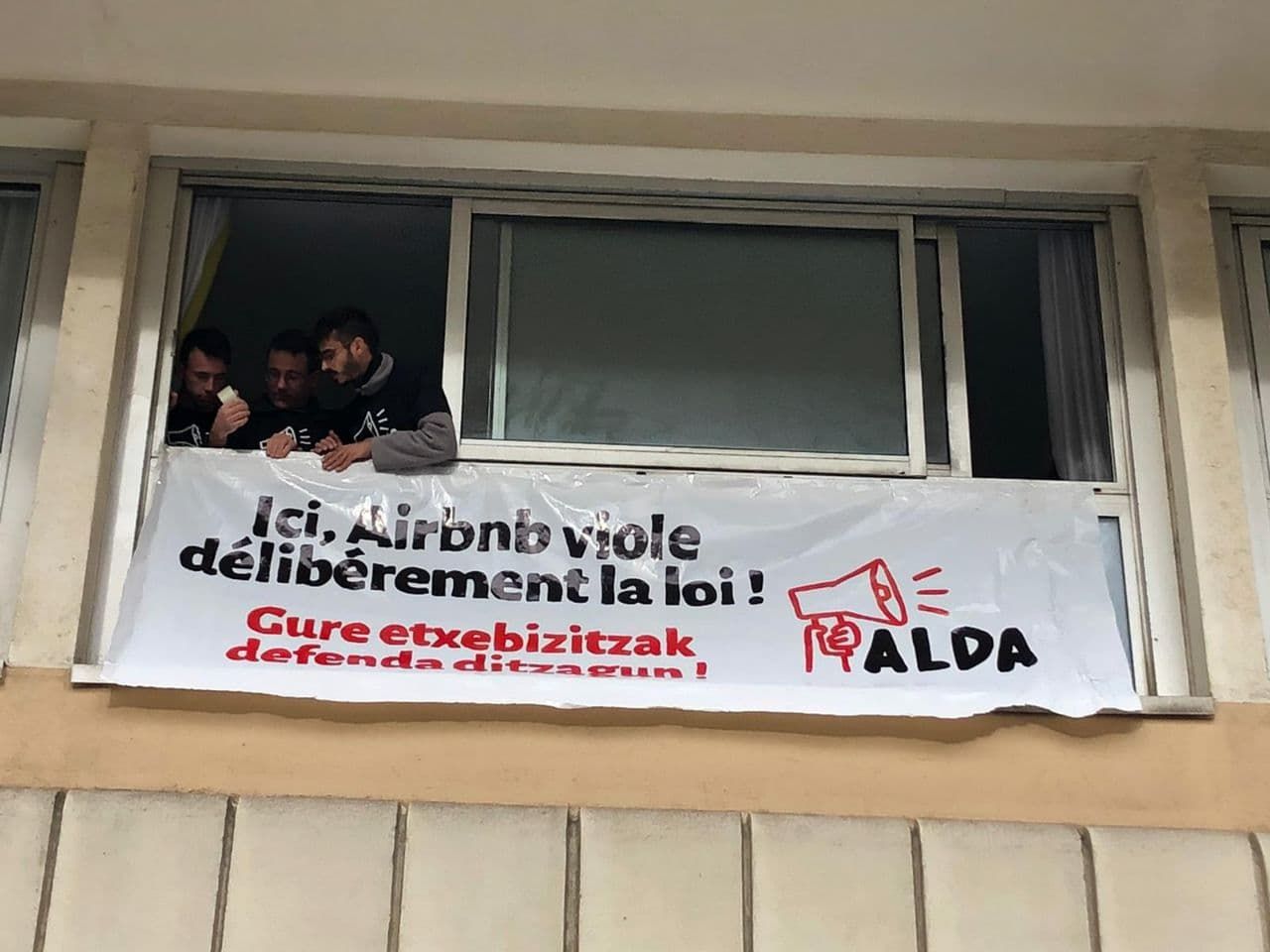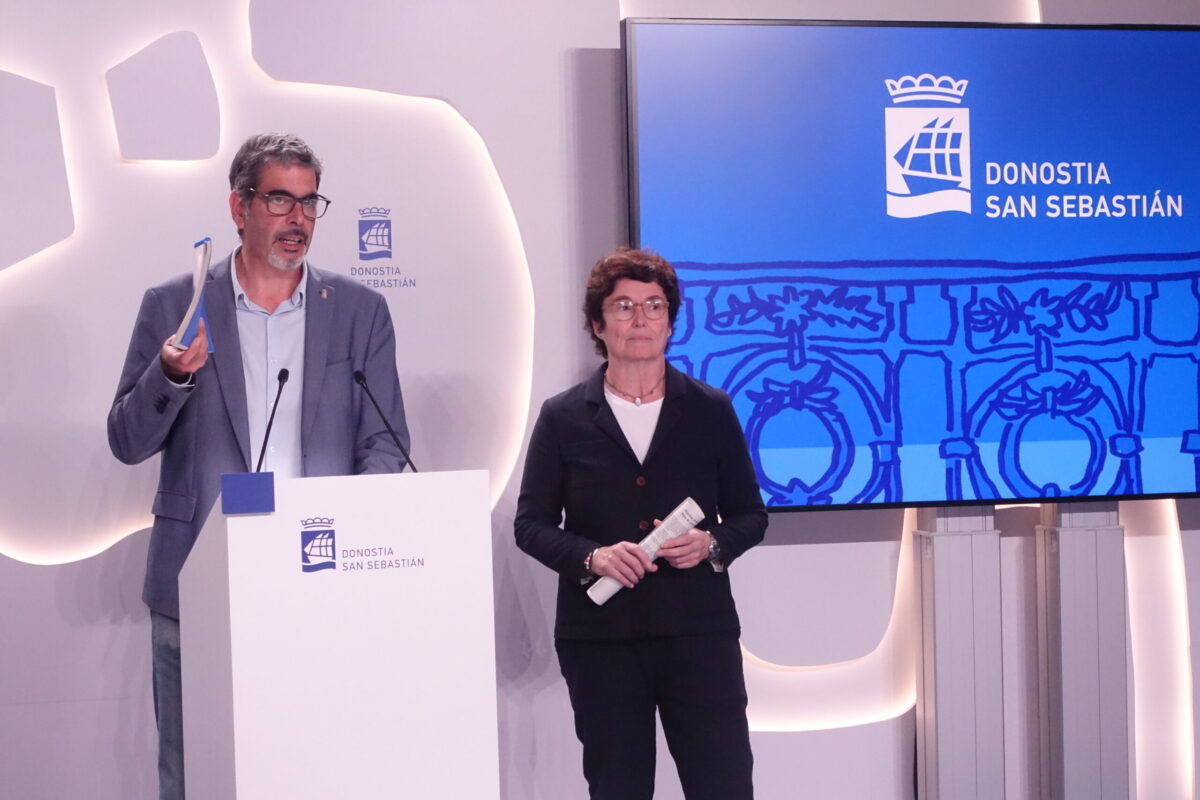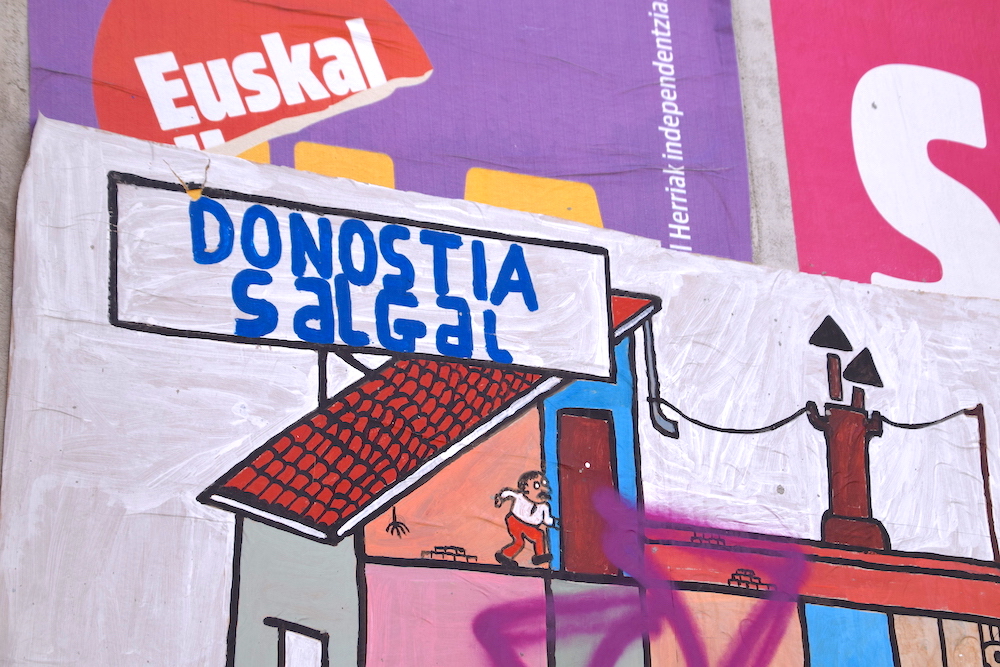October against Turistification was rounded off last Sunday with a multitudinous demonstration in favor of the tourist growth of the Bizilagunak platform, but the debate on turistification is still alive in the city. In particular, they have contacted the tourism of... [+]
"Metro, TAV Station... San Sebastian, a Monte Carlo?"
- If you've ever gone to the Bar Rekalde of the Old Part of Donostia, you'd definitely see Agus Rodríguez behind the bar, smiling, talking to one or the other. Who is it? In their words: “A 45-year-old Euskaldun berri zaharra, donostiarra, son, father, brother, companion, sometimes older and militant.” We talked to him at the door of the last year of the bar.
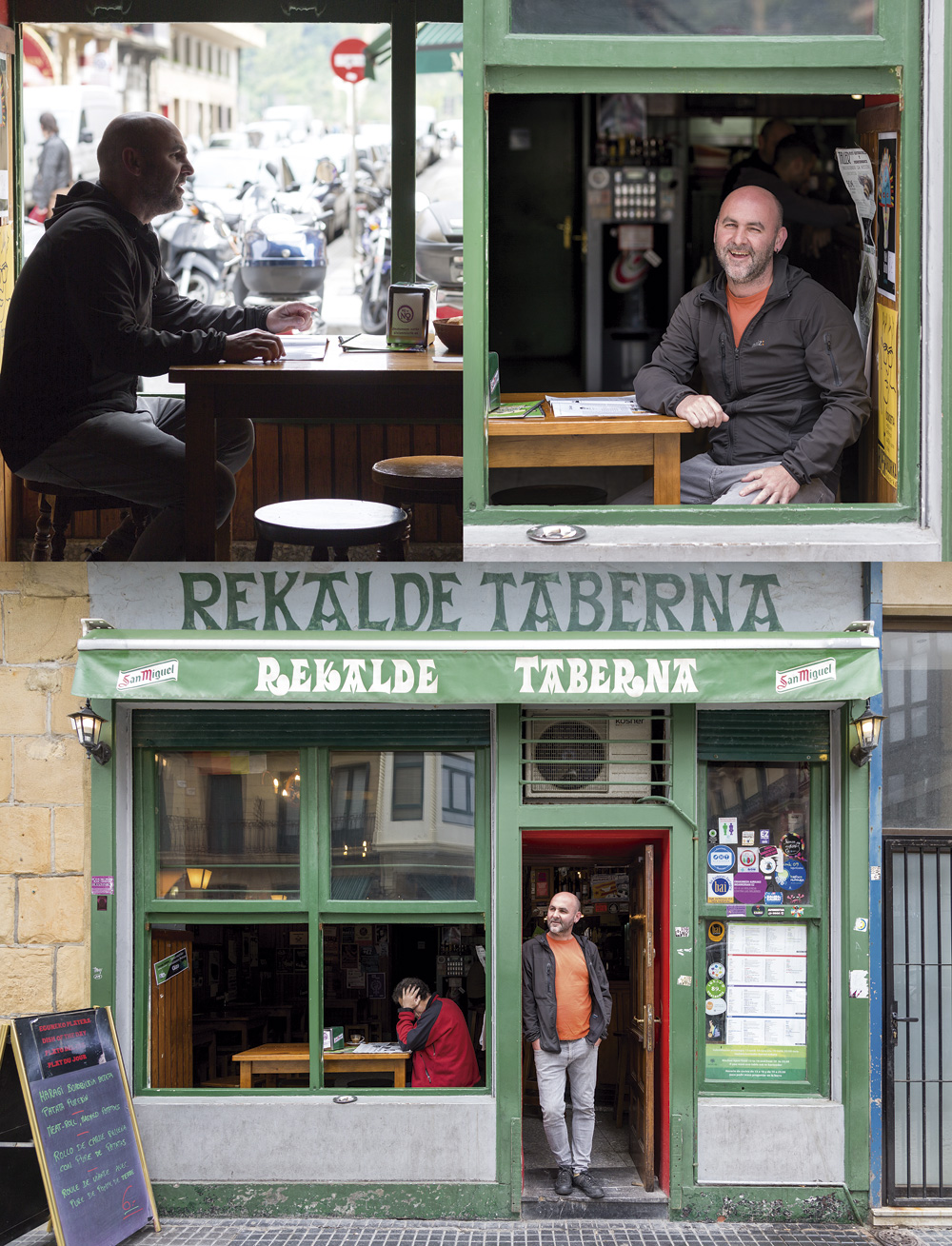
Lanbidez, tabernaria. Hainbat herri mugimendutan militatu du, eta gaur egun Libre dinamikako kidea da. Marketineko ikasketak egin zituen, eta munstroak nola funtzionatzen duen ikusteko balio izan omen zion.
The roots, and especially the mother, have had a lot of influence on you. Who was he and what had he given you?
The mother was born in Chipiona, Andalusia, because her father was from there, and also was a Carabinero – a police officer who came from the Republican era and was later absorbed by the civil guard. That's my origin. The mother's mother was from Zumaia and they came here when her mother was 8 years old. My mother used to say in Andalusia that she was Basque and here she was Andalusian. He educated us all ten children, he has communicated all our values to us, so it is important.
What values?
Humility, generosity -- I find it hard to put words, the truth. He was supportive and hardworking, doing a great job inside and outside the house. Our mother taught us that you never have to rejoice in anyone's death and suffering, and that can help you have a broader view when you're young and a little blind.
As a young woman, she began to militate. How about the environment?
I must say that I come from another world, from the Spanish world, I did not study in the ikastola, but in a public school, in Ategorrieta, and I think that also gave me good values, except for the Basque one. Related to militancy, I don't know why, but I was clear that I wanted to learn Basque. In my house we were Castilian parasites, but we have received a lot of Basque culture, Basque songs, etc. At AEK, in those days, besides learning Euskera, you permeated Basque culture, we participated in the Basque carnivals, in the celebrations of Gros… I started in the youth assembly, then walked in the local committee of Herri Batasuna, in the txoko society of Marruma and then worked for four years in the bar Marruma. I also militated in the neighborhood association of Gros. I have always said that it was up to me to live the good moments of militancy. In the 1980s, Euskal Herria was the country that had the most associationism in Europe, and that's what I've lived in my neighborhood; we were all together young people and adults. Altruism was our most effective weapon. We were dedicating a lot of hours to what we thought, whether it was the association of neighbors, the feminist collective, HB or whatever, each in place.
He was arrested in the case of the tobacco herriko.
I was arrested in April 2002, and one of the main features of our summary was that it lasted a lot. The trial began in October 2013, we went to Madrid for five months, until March 2014. The provisional judgment was given on 31 July 2014 and the final judgment was given in January 2016. That is, we were almost 14 years waiting, not knowing what would happen to our lives, going to sign weekly, unable to leave the Spanish State…
“Spaces like Rekalde seem to be left over in this city model”
What are you accused of?
During the 12 years of instruction, it was maintained that the people’s taverns provided ETA economically. They did not submit any evidence to do so. However, on the last day of the trial, the prosecutor made a triple leap and accused us of supplying money to Batasuna. They invented another concept: a collaborator of an organization dependent on a terrorist organization. The fact is that we were arrested in April 2002 and therefore had to judge the previous performance, but at that time Batasuna was a legal institution, because in July 2003 it was banned by the Parties Act. Therefore, the accusation had no basis, our judgment was absolutely political. As in many other cases. In the end, instead of eight years, the prosecutor asked for two years and two months and we were sentenced to fifteen months, but we did not go to jail for “incomplete delays,” because we spent a lot of time waiting for the trial first and then the sentence.
What would you highlight after this experience?
Of course, I went through bad times, but luckily I had all the support of my family and friends, and I appreciated that I was given a lot of those 120 hours of dungeon and that in our case we were not brutally tortured and in the end we were not imprisoned.
With regard to the trial, I would highlight two things. On the one hand, I had already witnessed in the trial against Gesture and had done so in a session of Summary 18/98 and had seen the traps being made in the National Court, how the law is tightened, but in our trial, in those five months, I saw and heard two huge. Many times I have thought about taking a release of four months and counting anecdotes like these; I can make a book.

Examples?
We went to Madrid every week for five months, and in the first weeks many sessions were suspended on whim: suppose we had a plan until Wednesday, because on Tuesday I don't know what witnesses, we were told we could go home. At the end of the trial, however, just the opposite happened, taking our hotel until Monday evening, and on Tuesday afternoon we were told that we should return to the next day: think, call home, manage your custody in case of having children, ask for work permit… A mess of many people, besides the accused, also lawyers. Well, we had to end on Tuesday, but we were told that we had to stop until Wednesday, we stayed, we did the morning session, and then we got back to the afternoon and we got time to go in. At a certain point a postponement was requested and while we were out there came one of our lawyers and told us: “I’ve heard the secretary that we’ll end the afternoon session, because Don Ángel [Hurtado, judge] has to go to Santiago Bernabeu to watch the Champions League game.” It was actually the afternoons until seven, because that ended at six because Don Ángel had to go and watch football. It looks like a joke of bad taste, but it doesn't, it works like this. This shows how they see us, what we are for them: five.
What is the other element you want to highlight?
Something positive: The solidarity of the people of Madrid. Terrible. We could hope to have political support, but they invented a way to organize human protection, knowing that we were going to go to a hotel every week, to a hotel, out of the house… After the trial I have tried to get this here, in Madrid there are really people of solidarity, who have risked to show us our support. We have often complained that the State Left has a 1,000 km syndrome, that if it happens in the Sahara or in Palestine they do not see with good eyes here what they do for good. But we have made the same mistake, we have also believed: “Left-wing yes, but Spanish.” Whether they are Spaniards or not, we must first ask them, and then we have many things to share with those people, and not only that, who have unreservedly overcome the obstacles that others on the Left have put to us in order to give us solidarity, and I believe that in that sense we are indebted to them and to all the anonymous people who have given us refuge or refuge in visits.
Why have you mentioned before that you really wanted to learn Basque?
I have several memories. I remember once I went to Zumaia, to my grandmother's village, to parties. Jon Maia sang bertsos and didn't understand it. And there I felt like, I felt like I was losing something. It wasn't a need, it wasn't an obligation, I was willing, I felt honestly that it wasn't me, I needed something else. My parents could not afford Euskaltegi to all the children – not even to university – so I searched for a job, a monitor of a ikastola, and because for that I had to know Euskera, I was paid for the association of fathers and mothers of the ikastola. I was three years old, enough to develop myself, although it's a continuous learning process, of course. 25 years later, last year I got the C1 level, because as things are like that, you have to prove that you know Euskera with a paper, and then I pulled it out. I was very surprised by the attitude of the people: I was going to Euskaltegi in search of titles. 25 years ago we went because we wanted to learn Basque, maybe when you got to the top level they offered to prepare you for EGA, but that at the same time, and now people are looking for it. I can understand, to some extent, but I gave it a tone of language academia, and in other times it wasn't that.

I have heard a new expression: people speak in Basque to children, to dogs… and to bars.
It happens to me in Rekalde: two friends come in, in Spanish, the two make me in Basque, not only ask for coffee, but ask for my son, for example, when I walk away, they come back to the coffee maker, and when I come with the cafes I speak again in Basque. So sometimes I play to see if you realize it's ridiculous. In our people, that is the tragedy, there are many Euskaldunes, but it seems that we cannot take that leap against customs, to use them from knowledge. We have done so at home and in the crew. It's possible.
You opened the Rekalde bar for sixteen years. What plans did you have?
To begin with, I have to say that I worked for four years at Marruma Bar, where I learned my trade. I am very grateful. It was precisely because of a woman working in Marruma that I learned that those who had Rekalde wanted to leave it, and it seemed to me that I had a special charm, so I cheered on.
It was clear that he was not going to make a normal bar, just a grocery and beverage outlet, but also not a village bar. The only thing I can say is that all my forecasts have been far exceeded, and that it has had an evolution that has been accompanied by my personal evolution. We've grown up, we've learned, we've gained experience, and I would say one of our greatest virtues is that it's an open place, where people feel comfortable. In Rekalde, all people are welcome, attitudes, chauvinist attitudes, homophobic and xenophobic attitudes. It's the responsibility of those of us who work there to take care of space, so we have amazing cooks, good coffee and sweet treatment, but you fill it with content, and I'm proud that in the individualistic and consumerist society today there are people who dream of another world and work to achieve it. When I took the Rekalde, I wanted to do something like that, but before I went to look for it, I let him in.
Will you close the doors next year?
We're at a very critical moment with the city model. In our area, we are collecting the damage that the large shopping centres did in their day to the small shops: the so-called investment groups abroad and in the Basque Country that are now buying bars, perhaps a group of this kind has seven bars. In this context in which the soul of the city and the neighborhood is dying, Rekalde is a breathing space of which we are proud and very happy, but apparently, for the triple that he has been sending for a long time in the City Hall (PNV, PSE and PP), there are plenty of spaces like Rekalde. I don't know if you're aware of the size of people's anger, the outrage of people from different backgrounds and backgrounds.
What other areas does this city model affect?
Living in San Sebastian is difficult: people cannot stay in their neighborhood, it seems that we have to go to the periphery and leave room for tourists and rich people who come from outside. I'm very worried. We have to turn on the red alarms. There was a rumor before, but it is now clear that things are happening, and even worse is what is not in sight. The modus operandi of the powerful is, with the permission of the City Hall, to do things hidden: they sell buildings and then change their use, from housing to tertiary use. We will not see scaffolding or cranes immediately, but that already exists and they will do so within two years or when they consider it appropriate. We have to fight before it is too late; look at the Metro project, the TAV station… What will Donostia, a Monte Carlo be?
It's getting organized.
There's a community of a powerful neighborhood that's in it, and as a neighbor of the Casco Viejo, I think those of us who are aware in the neighborhood are working with the neighborhood association and other agents. What surprises me most and distresses me is that it seems like this is something about young people or okupas, but it's not: it's a problem for everyone, it affects us all. It is not that I want to stay in the Old Town, but that I cannot take away our personality.
2020. urteko udaberrian lorategigintzak eta ortugintzak hartutako balioa gogoan, aisialdi aktibitate eta ingurune naturalarekin lotura gisa. Terraza eta etxeko loreontzietan hasitako ekintzak hiriko ortuen nekazaritzan jarraitu du, behin itxialdia bareturik. Historian zehar... [+]
Tasa edo zerga turistikoaren eztabaida urtetan luzatzen ari da, erakunde publikoetan ordezkaritza duten indar politikoen artean zabala den arren ezarri beharraren gaineko adostasuna. Eztabaidetako bat da zerga hori zein erakundek kobratuko duen: zenbait udalek (tartean... [+]
Ilbeltzeko igande goiz batez jo dugu Baztanera. Eguzkiak oraindik ez du Lekarozko plaza argitu; bertan elkartu gara Garbiñe Elizegi Narbarte, Itziar Torres Letona eta Ernesto Prat Urzainkirekin. Itzaletan hotz egiten du eta umorez goxatu dugu lehen agurra, hogei urtean... [+]
EHGAMek Axel hotelaren irregulartasunei jarritako helegitearen inguruko isiltasun administratiboaren ondoren, hotelaren itxiera eskatzen du eta hainbat eragileekin batera prentsaurrekoa eman dute.
Frantziako Estatuko diputatuak eta senatariak ados jarri dira. Orain arte, alokairu turistiko bat alokatzen zutenek etekinen %50 zergapetik kentzeko aukera zuten, urte osoko alokatzaileek, berriz, %30. Lege proposamenak biak hein berdinera ekarriko ditu, hots, %30era.
A long weekend. We've turned around the environment and we've taken advantage of it to make the picoteo. Tourists making selfies. Routes for tourists, rentals, shops, hotels, parkings, menu dishes, sign signs in all languages of the world. Tourists turn the usual places into... [+]









